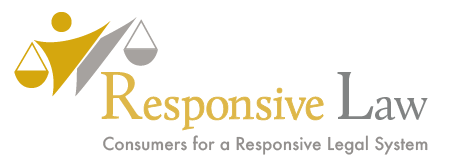Washington to Allow Non-Lawyer Providers
6/20/2012
Written by Tom Gordon
On June 15, 2012 the Washington Supreme Court adopted a groundbreaking rule which will allow consumers to use non-lawyers with certain training and education to provide technical help on simple legal matters. This Limited Practice Rule for Limited License Legal Technicians (“LLLT”) will be effective September 1, 2012 and is a monumental step toward increasing access to justice for Washingtonians. The purpose of the rule is to authorize certain persons to render limited legal assistance or advice in approved areas of law.
This rule was a product of the Washington Practice of Law Board, which was created to handle unauthorized practice of law (“UPL”) complaints. In other states, UPL committees are dedicated to defining and investigating complaints for UPL. Such investigations often cause more harm than good to consumers, as they sweep up useful service providers alongside fraudulent ones. However, rather than blindly cutting off non-lawyer services for consumers, this UPL committee focused on finding ways in which access to law-related services can be improved by allowing consumers to use well-regulated non-lawyer professionals.
While some of the specifics regarding Limited License Legal Technicians are still being worked out, there are some guidelines that the Washington Supreme Court has already outlined. LLLTs must:
Pass a moral character and fitness test;
Have an associate’s or bachelor’s degree in paralegal/legal assistant studies with a minimum of two years’ experience as a paralegal/legal assistant doing substantive law-related work under the supervision of a lawyer (at least one year of that under a Washington lawyer) or have a post-baccalaureate certificate in paralegal/legal assistant studies along with three years of experience as a paralegal/legal assistant doing substantive law-related work under the supervision of a lawyer (at least one year of that under a Washington lawyer);
Complete 20 hours of pro bono legal service in Washington within two years of taking the LLLT exam;
Successfully pass the LLLT exam;
Show ability to meet financial responsibilities;
Have a physical address in Washington;
Create a written contract which describes their services and fees;
After an individual meets all of those requirements for an LLLT they will then be authorized to engage in tasks previously allowed only by attorneys. This is a great development because prior to this rule, these tasks, most of which are basic, have been monopolized by the legal profession but can be competently done by well trained and educated individuals for a fraction of the cost of hiring an attorney.
Some of the tasks which LLLTs will be able to engage in under the new rule are:
Explaining facts and relevancy to their clients;
Selecting and completing court forms;
Informing clients of applicable procedures and timelines;
Reviewing and explaining pleadings;
Identifying additional documents that may be needed in a court proceeding;
Providing the client with self-help materials approved by the Board or prepared by a Washington state lawyer;
Performing legal research and writing legal letters and documents, but only if reviewed; by a Washington lawyer;
Advising the client about other needed documents;
Assisting the client in obtaining needed documents;
This model also improves upon that of California, which along with Arizona is the only state to license and regulate legal technicians. California currently licenses legal document assistants (LDAs) to help consumers with legal document preparation. However, California LDAs are forbidden from offering legal advice, discussing legal strategies, answering legal questions, or selecting forms for the consumer. Therefore, in California, LDAs can be prosecuted for UPL if they advise clients on something as essential as determining which legal forms need to be completed.
Under the Limited Practice Rule, Washingtonians will have access to a broader range of services from LLLTs than Californians can receive from LDAs. The ability for LLLTs to be able to advise clients on a broader range of tasks, such as which forms are appropriate, will make the program more dependable to consumers. For example, if a Californian goes to an LDA with a form that is inappropriate for the task at hand, the LDA may not correct them and suggest the correct form. In Washington, the LLLT can correct obvious consumer mistakes such as this.
Allowing access to LLLTs will also allow legal services organizations in Washington to save money and serve more people with complex legal needs, since LLLTs can alleviate many of the simpler legal issues before legal services agencies. Moreover, courts will benefit by facing more knowledgeable self-represented litigants who have filed the correct paperwork and who will be better prepared for the court hearing, resulting in less rescheduling of court dates and less need for judges to explain court processes to litigants.
With LLLTs being able to handle more basic legal services, consumers will have a greater ability to save money by unbundling legal services. For example, a person with an uncontested divorce could use an LLLT for the majority of the paperwork, such as division of property issues, but might consult a lawyer for more complicated parts of the divorce, such as child custody.
If Washington continues to execute the licensing and regulation of LLLTs smoothly, and other states follow Washington’s lead, this could be one of the greatest advances for consumers of legal services since the U.S. Supreme Court outlawed mandatory fee schedules in Goldfarb v. Virginia State Bar in 1975.
Tom Gordon is Executive Director of Responsive Law.
